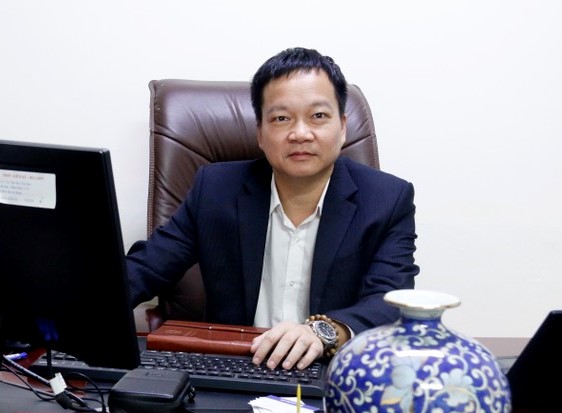.jfif) Opinion
Opinion


|
| Deputy director of the Tertiary Education Department Nguyễn Anh Dũng. — Photo giaoduc.net.vn |
Nguyễn Anh Dũng, deputy director of the Tertiary Education Department (under the Ministry of Education and Training - MoET) speaks to Giáo dục Việt Nam (Việt Nam Education) e-magazine on the measures to take for better quality control of joint training programmes in higher education institutions.
The quality of international joint programmes in several higher education institutions has been a matter of concern recently. What is the Tertiary Education Department’s point of view regarding this issue?
Decree No 86/2018/NĐ-CP has outlined strict regulations on joint training programmes between higher education institutions (both local and international) and foreign partners, which are required to meet the standards regarding programme quality, and that the graduation requirements of the joint programmes must not be lower than those specified in Vietnamese legal documents.
Foreign language fluency is mandatory for students of joint programmes at the tertiary education level, according to Decree No 86/2018/NĐ-CP.
If students receive the diploma issued by the Vietnamese institution, they will have to achieve Level 3 of the Vietnamese six-level foreign language proficiency framework or equivalent certification.
If students receive the diploma issued by a foreign institution or a dual degree, a Level 4 certification of the Vietnamese six-level foreign language proficiency framework or equivalent is required.
Decree 86 also states that based on the needs of learners, joint education institutions can organise foreign language training courses to help students reach the required level specified at Point D of this clause prior to the official programme.
In particular, the sustainable development of education institutions relies on quality, and today, learners have more information and choices. They are not easy to convince, especially with the high tuition fees of joint programmes.
Schools that put focus on quality will better attract students, while those who do not will sooner or later lose their credibility and no longer be an option.

|
| High school graduates and schools' representatives at a university admission counselling event. — VNA/VNS Photo Thanh Tùng |
The MoET will soon specify regulations and instructions regarding international joint programmes through circulars. Which aspects will these documents focus on?
The upcoming circulars issued by the MoET will focus on requirements to ensure education quality (curriculum, facilities, teaching staff, etc.).
It will also emphasise the responsibilities of partners, and regulations on handling violations in the context of the increasing autonomy and accountability of universities operating in Việt Nam, according to the amended Law on Higher Education.
In addition, the MoET will also introduce detailed regulations on evaluating training programmes and diploma recognition to ensure learners’ interest, and the transparency of information on the training quality of international joint programmes.
Education experts said that apart from rankings, universities in Việt Nam should consider more criteria to select reputable partners and therefore improve training quality. What are these criteria?
Decree 86 currently does not require selecting foreign education institutions ranked in reputable world rankings. However, to attract students to quality programmes that fit the needs of the Vietnamese, local universities often look for good institutions in global rankings for partnership and cooperation.
In today’s context with university autonomy, autonomous universities, if meeting requirements, can decide on partnering with reputable foreign institutions for joint training programmes to enhance their own credibility.
To ensure quality in international joint training programmes, the amended Law on Higher Education in 2018 states that universities must publicly disclose relevant information on international joint programmes on the school websites and mass media. This includes the validity of the foreign diploma issued in the partnered institution’s country and in Việt Nam.
These institutions shall also assist students in recognition of degrees, and carrying out assessments of the joint programmes offered in Việt Nam after graduation and periodically. — VNS




